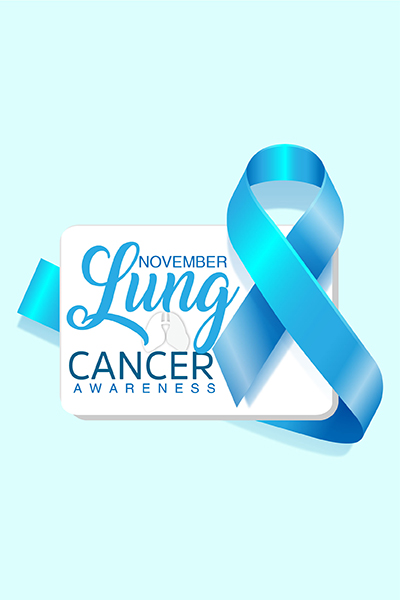As November is marked as the month of Lung Awareness Month, here are a few questions answered by Dr. Rajas Patel, Medical Oncologist, RH Clinic:
Q1. How frequently are you seeing lung cancer in your own practice nowadays, is there an increase in Lung cancer cases?
Ans: Incidence of lung cancer detection have definitely increased to several folds over the last decade; the easy accessibility to diagnostics, general awareness among the population or the natural/unnatural risk factors of lung cancer are few reasons we can think of.
Q2. What groups are more susceptible to developing lung cancer?
Ans: Chronic smokers, chronic exposure to chullah or other smoke-producing things, chronic exposure to asbestos, cement and paint factory workers, chronic radiation exposure are few groups more susceptible to lung cancer. Although, “young Asian non-smoker females with mutation positivity” is the new group identified in the past few years.
Q3. Why do you believe it is important to detect lung cancer earlier?
Ans: Lung cancer can get cured if detected early, in later or advanced stages it practically becomes impossible to cure the disease, and we can only keep control on it then.
Q4: What do you look for in a patient with lung cancer in terms of genetic testing? How can this impact treatment options for patients?
Ans: Molecular testing is a very important part of lung cancer workup, especially in metastatic (stage 4) disease, where only single tablet, can, although temporarily, control disease and patients can avoid chemotherapy with a high number of side effects.
Q5: What are some of the current treatment options for patients with lung cancer?
Ans: Current treatment options are divided into two groups:
1) Localised or early-stage disease
2) Advanced or metastatic disease.
For localised disease, various combinations of surgery, radiotherapy, chemotherapy and immunotherapy are available options and your doctor can help you choose the best oneFor advanced or metastatic disease, depending on the molecular testing and another advanced testing (eg. EGFR, ALK, ROS-1, TMB, PDL-1 expression, etc) doctors can prescribe you chemotherapy, drugs for positive mutational studies in oral tablets form or a very recent Immunotherapy option.
Q6: In terms of treatment, immunotherapy continues to dominate the landscape of Lung cancer?
Ans: Immunotherapy has changed the overall scenario of prognosis in terms of life expectancy in advanced or metastatic disease of lung cancer. Some drugs are being routinely used now and some are still being used in trials and may hit the market in upcoming years.
About Dr. Raja Patel: Dr. Rajas Patel, marked as one of the renowned doctors, Dr. Rajas Patel started his journey with the zest to become a well-qualified medical practitioner. He initiated his dreams of making a mark in the medical field with an MBBS (Bachelor of Medicine and Bachelor of Surgery) degree from Maharashtra University of Health Sciences. Further to this, he mastered his skills with an MD degree (Doctor of Medicine) in General Medicine from Patil University of Navi Mumbai. Indeed, his keenness to fine-tune his curing capabilities went beyond MD Degree and he did a Fellowship in Medical Oncology from renowned Jaslok Hospital and Research Centre in Mumbai.

